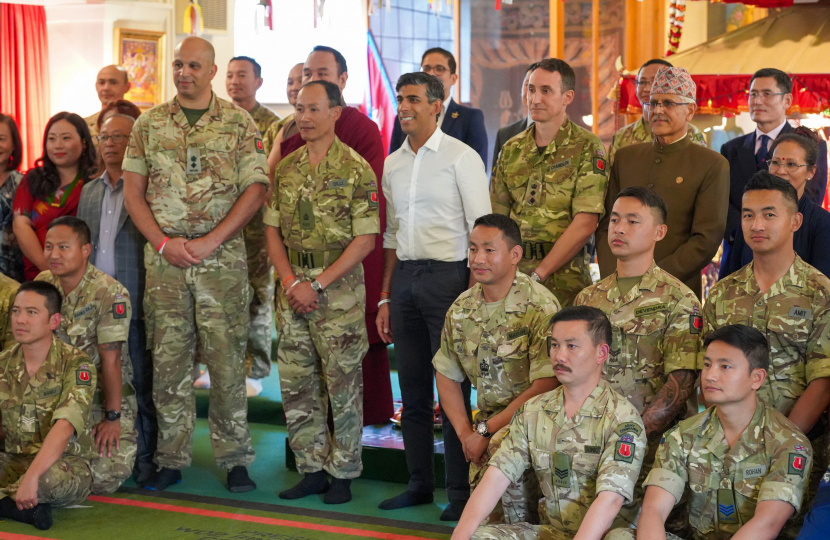
I recently had the honour and the privilege to visit the Gurkha Temple at Catterick Garrison.
As many of you will know, particularly those who live in the Garrison, Colburn and Richmond areas, the Gurkha community is an important one in North Yorkshire, based upon the training of young Gurkha recruits at the Garrison’s Infantry Training Centre.
Links between the Gurkhas and the British Army date back more than 200 years. The Army’s Brigade of Gurkhas was first formed after Indian independence in 1947 and Gurkha recruits have been trained at Catterick for more than 70 years, providing a valuable source of high-quality soldiers.
More than 200,000 Gurkhas fought in the two world wars, and in the past 50 years they have served in Hong Kong, Malaysia, Borneo, Cyprus, the Falklands, Kosovo and now in Iraq and Afghanistan.
Their bravery is legendary. Gurkhas have been awarded no fewer than 14 Victoria Crosses and today the Brigade of Gurkhas is considered an elite unit within the British Army.
The Garrison’s Gurkha Temple, which opened in 2015, plays an important role in helping the young recruits adjust to life in North Yorkshire.
After undergoing a rigorous selection process in Nepal for the coveted training places – up to 28,000 apply for the 200 places which make up each intake – they are flown to the UK and go straight to Catterick to start their 39-week training course to become soldiers in the British Army.
The course culminates in a passing out parade which I had the privilege of inspecting in 2021. I’ll never forget the pride of the successful recruits and their families as they were put through their paces on the Catterick parade ground.
These young Nepalese men’s arrival in the UK must be quite a culture shock for them and the Temple, which is a social as well as a religious hub, helps them maintain their traditions as they embark on their military careers in Catterick, far away from their mountainous homeland.
In the beautifully-decorated Temple, I took part in a simple yet moving service with the recruits, their officers, support staff and families. It gave me the opportunity to give thanks for the contribution the Gurkhas have made to the British Army – and to our local community.

